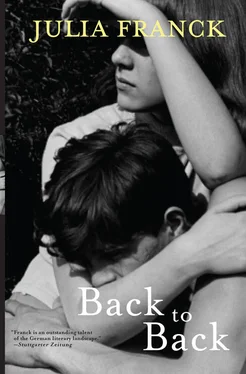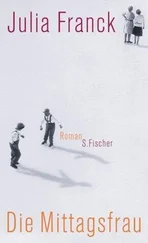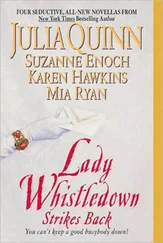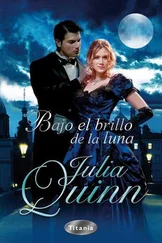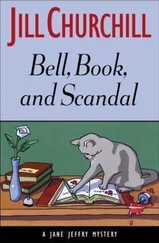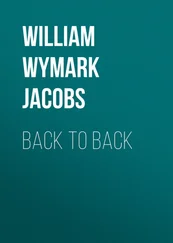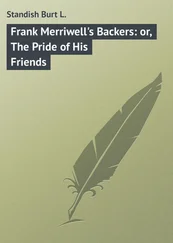Julia Franck - Back to Back
Здесь есть возможность читать онлайн «Julia Franck - Back to Back» весь текст электронной книги совершенно бесплатно (целиком полную версию без сокращений). В некоторых случаях можно слушать аудио, скачать через торрент в формате fb2 и присутствует краткое содержание. Год выпуска: 2013, Издательство: Grove Press, Жанр: Современная проза, на английском языке. Описание произведения, (предисловие) а так же отзывы посетителей доступны на портале библиотеки ЛибКат.
- Название:Back to Back
- Автор:
- Издательство:Grove Press
- Жанр:
- Год:2013
- ISBN:нет данных
- Рейтинг книги:3 / 5. Голосов: 1
-
Избранное:Добавить в избранное
- Отзывы:
-
Ваша оценка:
- 60
- 1
- 2
- 3
- 4
- 5
Back to Back: краткое содержание, описание и аннотация
Предлагаем к чтению аннотацию, описание, краткое содержание или предисловие (зависит от того, что написал сам автор книги «Back to Back»). Если вы не нашли необходимую информацию о книге — напишите в комментариях, мы постараемся отыскать её.
, was an international phenomenon, selling 850,000 copies in Germany alone and being published in thirty-five countries. Her newest work,
echoes the themes of
, telling a moving personal story set against the tragedies of twentieth-century Germany.
Back to Back Heartbreaking and shocking,
is a dark fairytale of East Germany, the story of a single family tragedy that reflects the greater tragedies of totalitarianism.
Back to Back — читать онлайн бесплатно полную книгу (весь текст) целиком
Ниже представлен текст книги, разбитый по страницам. Система сохранения места последней прочитанной страницы, позволяет с удобством читать онлайн бесплатно книгу «Back to Back», без необходимости каждый раз заново искать на чём Вы остановились. Поставьте закладку, и сможете в любой момент перейти на страницу, на которой закончили чтение.
Интервал:
Закладка:
Are you asleep? Thomas was leaning his hands on his knees, his voice was loud now. She must have nodded off without noticing. You’re not interested. Thomas put the sheet of paper back on the desk.
Yes, I am, of course I’m interested, go on reading, I wasn’t asleep.
Don’t tell lies, you were snoring, loud strong snores.
Ella couldn’t help giggling. Wearily, she turned her head from side to side. Her eyelids felt so heavy that she couldn’t even shake her head.
Can you actually listen without falling asleep? Thomas rubbed his eyes.
Of course I can. Ella sat up with a vigorous movement, and her head fell forward. I saw a smile on your face, she pointed to him, there, I knew it, I spotted it. In between the lines. A smile you didn’t want to show. I know, Ella closed her eyes, I mean, who wants to smile? You were fond of Grandfather, weren’t you?
Thomas breathed in deeply and audibly. Did he have to be patient with her? Ella made her own sense out of his poems; it had as little to do with understanding them as simply listening to them. She just couldn’t listen, she knew that herself, and she couldn’t help it.
We’re all saddled with our own guilt, innocent only when we’re born. Was that a preachy note in his voice? Was he going to deliver a sermon now?
Oh yes? Ella smiled a tipsy smile; sometimes Thomas thought in a very simple, almost plain way.
I did love him, yes. The childish side of him, his bib, the way he dribbled, his hearty laughter when we went to have a meal with the grandparents. Words like bockletop, suddlefoot, snickety-snack, he invented them in the first place, do you remember? He talked to us like that for days when we were little. Covered with the scabs of wounds / In the grip of frozen snow.
Ella shook her head. She had not loved anything about Grandfather, not the professor or his childish side. With the best will in the world she couldn’t see what her brother saw in him. Perhaps her will just wasn’t strong enough. How often was it? Ella found it hard to hide her amazement at the love he suddenly said he had felt, or at least had unexpectedly expressed. If they saw their grandparents two or three times a year, that was often enough.
What does often mean? Love doesn’t observe the frequency of opportunities. And very rarely, sometimes, I forget myself, / as I dare to remember. / As it came, so it goes, / under the pressure of petty things. / I cannot hold it fast, that lovely, lost / ruined dream in the past. / Only the letter I wrote him in his grave / I remember painfully well. // The words are burnt on my mind / they are my only faith — / Now you must forget — it says there, in the blood — / Forget, be silent, wait!
So that’s the end of your poem. Ella leaned over until her hair was dropping on the floor and tried to drink from her wine glass, which was standing beside the bed. Always blood, death and forgetting — you’re mad about them. Well, that figures! The wine glass tipped over, and Ella tried to catch it with her lips.
Thomas gritted his teeth. He was annoyed with himself for reading his poem aloud to Ella. Couldn’t he be happy that she followed his voice into sweet dreams? And what did he want to know about her? What did she know about death? Obviously not half as much as he did. At least she didn’t hope for anything from him. Her troubles were different: the heavy tongue that kept her from speaking well. And Johnny’s unhappy letters were embarrassing, now she came to think of it. She reached for her glass. Better drink a little more. Forget, be silent, wait! Ella was powerless against it, she had nothing to say in answer and nothing to say against it. Glass in hand, she stood up, bobbed a little curtsy and said goodnight: Zumbledum. Sleep well. Would be nice if you’re really better now.
Beginning
Thomas got off the tram and walked along beside an old wall made of rounded, natural stones. Ivy clambered around it, clinging to the stone. Thomas had checked on the street map that the hospital grounds must be in the next block. He was to report to the Personnel Office at 8 a.m. A glance back at the tram stop, but the clock had obviously stopped. His hands sweated if he found himself on the way to a new place on his own, a place that was to mean something to him, a place where he had to prove himself. They had sweated last autumn in the train to Gommern, they were sweating again today. He clenched his hands into fists inside the pockets of his jacket, spread his fingers, then clenched them again. Before he shook hands with anyone he would have to wipe his hand on the lining of the pocket. He had his school reports with him. There was nothing wrong with them, and nothing he could do about it now — good marks hadn’t helped him in Gommern either. Didn’t he need a letter from the Ministry? he had asked Käthe yesterday. He felt naked. No, no letter had come, and she was sure he wouldn’t need one, not this time. Thomas pressed his briefcase more firmly under his arm and put both hands to his mouth, breathing warm air into the loosely clenched fists. Even though his hands were sweating, they were cold as ice. When he reached the gate and passed the porter, it struck him that he hadn’t combed his hair. There were boys who always had a comb with them, even if they didn’t need it. They had been brought up to have it ready. Thomas was not like that; he was uncombed, badly brought up. Anyone could see that at once. Anyone who wanted could simply see it. Thomas ran one sweating hand through his hair. However, he could smile. He smiled.
He would probably be accommodated in the brick building to the right of the entrance — the crematorium. Why else did it have the big chimney? The laundry, the kitchen, the boiler room — he was sure none of them needed chimneys of this size.
Ahead of him there was a broad path with flower beds down the middle. To the right and left of the beds you could walk on small, light-coloured paving stones, and the flower beds were surrounded by cast concrete stones with pebbles in them. A glasshouse on the left might once have been the hospital’s own nursery garden, they must have grown vegetables there during the years after the war; at least, the glasshouse was mended with cardboard and other materials in places, although it was certainly no longer in use. Thomas thought of the Botanical Garden, which since last August seemed to him like the garden of Paradise. It was over a year now since he had last been there, he had gone over to the west of the city on the suburban train with Michael. They had looked at the carnivorous plants and the collection of poisonous plants. For the last time, although they didn’t know it. They would never go there again. By way of compensation there was the Natural History Museum here in the eastern part of the city. Dusty animal specimens, embryos of mammals preserved in formaldehyde. Ammonites and fossils. Never again would he be able to admire a Drosera omissa, however unpretentious. Or an alpine butterwort. When would he ever see Aldrovanda vesiculosa again? True, it was said that the magical waterwheel plant, hanging in the water as lovely as a green bride, also grew in Europe. But he and Michael had searched the reeds beside the Müggelsee in vain last summer, they had waded along the bank, they had also parted the rushes beside the river, but they had not discovered the beautiful plant anywhere. She was a sensitive bride who liked only clear, clean warm water. You could draw a lesson from the plant; it grew at one end while it died at the other. Life as a waterwheel plant must be good.
I can show that I laugh / if you want me to / and that is often. / The rest is my business.
A robin sat in the black foliage of the borders, pecking. The snowdrops were over. The young green leaves of crocuses and grape hyacinths were coming up. How they shone against the black of the winter leaves. A man on crutches was standing on the path, and Thomas almost ran into him, his eyes were so captivated by the robin. Thomas swerved to one side and apologised. A clock hung from the first low building; it was ten to eight. His hands were sweating. Thomas practised walking with a steady step. This slightly uphill path was a long one. Two gardeners were kneeling on the paving stones, putting plants in the soil. Another gardener was removing blackened leaves from the beds with short, sharp movements, using a fan-shaped rake. Why hadn’t Thomas thought of it before? It would be good to be a gardener. He wouldn’t find his hands sweating if he were a gardener, he could kneel on the ground and sow the seeds of flowers, he would prune rose bushes and take snails to places where they would be safe from the birds.
Читать дальшеИнтервал:
Закладка:
Похожие книги на «Back to Back»
Представляем Вашему вниманию похожие книги на «Back to Back» списком для выбора. Мы отобрали схожую по названию и смыслу литературу в надежде предоставить читателям больше вариантов отыскать новые, интересные, ещё непрочитанные произведения.
Обсуждение, отзывы о книге «Back to Back» и просто собственные мнения читателей. Оставьте ваши комментарии, напишите, что Вы думаете о произведении, его смысле или главных героях. Укажите что конкретно понравилось, а что нет, и почему Вы так считаете.
